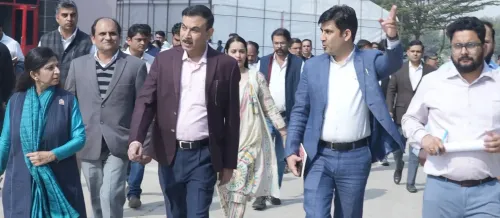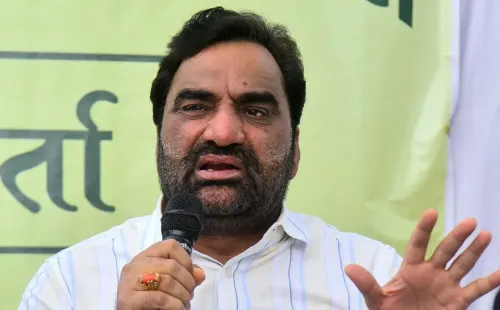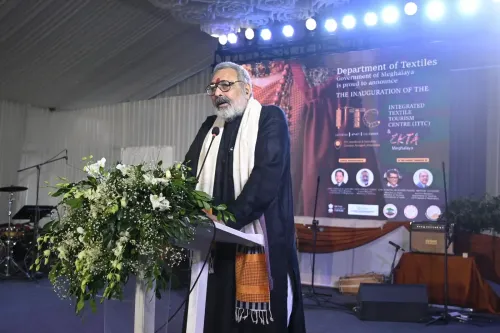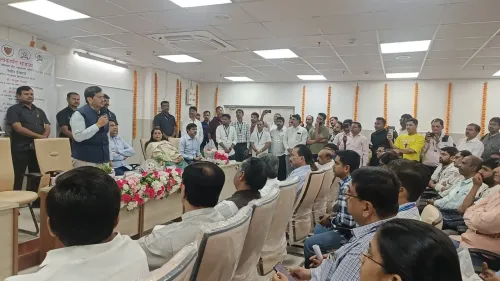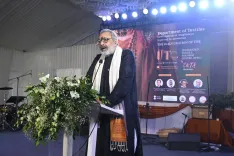How is Assam Expanding Its Co-Districts to 49?

Synopsis
Key Takeaways
- Assam's total co-districts now reach 49.
- Eight co-districts inaugurated today.
- Focus on decentralizing administration.
- Access to essential services improved for citizens.
- Government aims to bring services closer to the people.
Guwahati, Aug 12 (NationPress) The state of Assam is set to introduce 10 new co-districts, raising the total number of these administrative divisions to 49, as confirmed by officials on Tuesday.
The newly established co-districts consist of Boko-Chhaygaon and Palashbari in Kamrup district, Borsola and Rangapara in Sonitpur, Mariani and Teok in Jorhat, Makum and Digboi in Tinsukia, Dholai in Cachar, and Dudhnoi in Goalpara.
A senior official indicated that eight of these co-districts will be inaugurated on Tuesday, with the remaining two set to be launched on Wednesday.
The Chief Minister’s Office announced on X, “With the inauguration of 10 more co-districts in the second phase, the Assam government is making strides in enhancing governance at the grassroots level.”
The establishment of these new co-districts aims to decentralize administration, enhance the provision of public services, and strengthen welfare measures locally. This marks the second phase of the government’s initiative to expand the co-district framework.
In the initial phase, 39 such administrative units were launched in October of the previous year.
Chief Minister Himanta Biswa Sarma previously remarked that the Assam government’s initiative to create co-districts is a pioneering approach within the country.
The key characteristics of these co-districts include smaller administrative units situated below the district level, ensuring timely access to vital government services for residents.
Sarma asserted that this significant initiative will enhance efficiency, facilitating governance at the grassroots and streamlining citizen-centric services.
A variety of essential services will be accessible under this co-district initiative, including the issuance of certificates such as next of Kin, Caste, Non-Creamy Layer, PRC, and magisterial powers.
Furthermore, permissions for events, functions, fairs, and similar activities will be granted from the co-district offices, alleviating the need for residents to visit district headquarters for most official matters.
Sarma mentioned, “Issuing ration cards, distributing rice under government schemes, and granting permission for land transactions will now occur at the co-district level. This will effectively bring government services closer to the people.”


